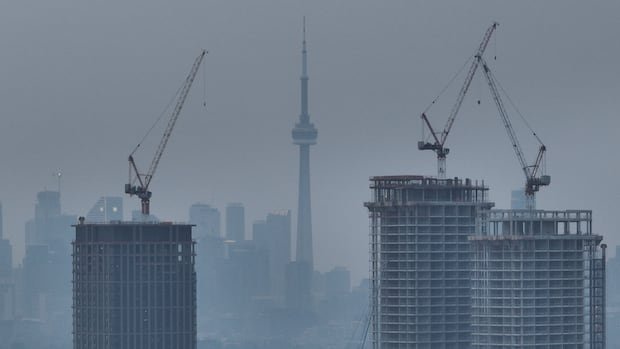An Ontario labor organization is pushing for enhanced worker safeguards in response to escalating worries about poor air quality from wildfire smoke increasingly enveloping the region. The Ontario Federation of Labor, representing over 55 unions in the province, is advocating for improved protections in light of climate change’s impact on working conditions. President Laura Walton highlighted the absence of regulations safeguarding workers from heat or air quality issues, unlike the guidelines in place for cold weather. Collaborating with the provincial New Democrats, the federation is planning to introduce a legislative motion this fall to address the lack of worker protections amidst rising extreme weather occurrences.
As part of their initiative, the federation intends to gather firsthand accounts of summer working conditions by deploying instruments to monitor heat and humidity levels in workplaces across Ontario over the next six weeks. They will also conduct surveys among workers to assess their working environments, including inquiries about air quality advisories in their areas. Walton emphasized the importance of this data collection to provide evidence when discussing the summer’s working conditions at the legislature later in the year.
Throughout the summer, Environment Canada has issued multiple air quality alerts in Ontario due to drifting wildfire smoke from neighboring provinces, with conditions deteriorating rapidly at times. Walton stressed the significance of educating workers on creating safe workplace environments, encouraging them to request essential items like air purifiers and proper ventilation systems to shield themselves from wildfire smoke.
Michael Lynk, a law professor emeritus at Western University and former labor lawyer, suggested that the increasing frequency of air quality warnings should prompt unions to assert workplace rights more assertively in the future. Unions are already negotiating for stronger health and safety provisions through collective bargaining, potentially including the authority to halt operations in unsafe conditions. Lynk also highlighted the role of joint health and safety committees in advocating for specific safety measures in workplaces with 20 or more employees.
Workers currently possess the right to refuse work in extreme heat or poor air conditions, a legal recourse that can compel employers to address safety concerns seriously. Lynk emphasized that the mere possibility of refusing work, within the bounds of health and safety laws, could prompt employers to address union grievances promptly. With the ongoing impact of extreme heat and air quality issues foreseen in the future, both large employers and unions are expected to take a more proactive stance in negotiating for safer working conditions and invoking workers’ rights to refuse work when faced with unsafe environments.

